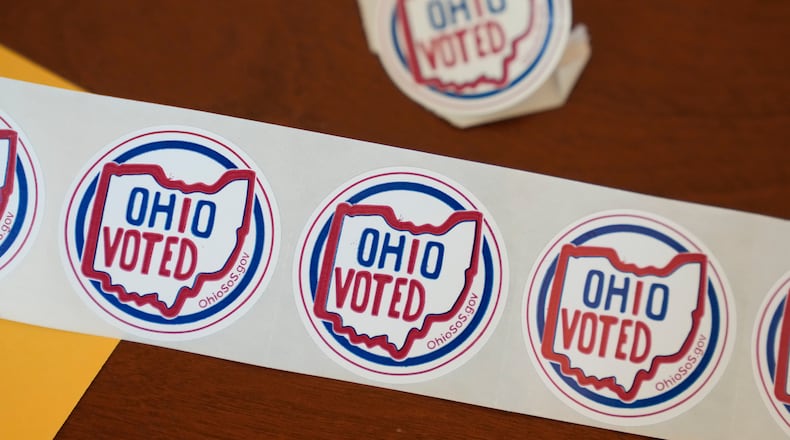If passed this August, Issue 1 would move the goalposts and potentially preempt a forthcoming abortion-rights initiative expected this November.
Taft, a Republican, vocally opposed raising the threshold earlier this year. He called it “especially bad public policy,” to use an August election — which Republicans had limited due to cost and low voter engagement just months prior — to decide “such a consequential constitutional amendment” that would “fundamentally change Ohioans’ voting and constitutional rights.”
Taft warned state legislators that a 60% requirement to pass amendments would stymie important policy, like his environmental Clean Ohio Fund and the economic Third Frontier Project — two policies still used today that were borne from amendments that passed with less than 60% of the vote. Taft noted that the change would make it harder for the state to incur debt and procure funding for specific projects.
Curtin, a Democrat, will add his perspective as a politics reporter and former legislator who sat on the state’s Constitutional Modernization Commission from 2013 to 2016. He testified against the 60% threshold as the resolution made its way through the Ohio General Assembly earlier this year, characterizing Issue 1 as a “proposed solution to a nonexistent problem,” and argued against using an August election to put it on the ballot.
The event will be moderated by Dayton Daily News Community Impact Editor Nick Hrkman.
Chris Corba, executive director for the League of Women Voters of the Greater Dayton Area, said her nonpartisan organization doesn’t endorse candidates but will take positions on certain issues; in this case, they oppose Issue 1.
Corba said her organization and the larger Ohio League of Women Voters is worried about issues that span past abortion. “The biggest issue that we’re concerned about is redistricting and ending gerrymandering,” she said. “It’s going to be virtually impossible with this 60% threshold.”
Corba said, while using an August election to put the question before voters is concerning to her, Dayton’s league of women voters would take the same stance on it even if it was on the November ballot.
“Overall, it takes away our ability to effect change. It’s going to make it virtually impossible for citizen-led initiatives to be put on the ballot,” Corba said. “The lift that’s going to be required of citizens to be able to effect change in the state is going to be incredible.”
The free program will be held on June 27 from 6:30 to 8 p.m. at the Fred Smith Auditorium at Sinclair Community College, 301 W. Fourth St. Reservations can be made by contacting the League at league@lwvdayton.org or 937-228-4041. A recording of the program will be available via the League’s website.
About the Author

